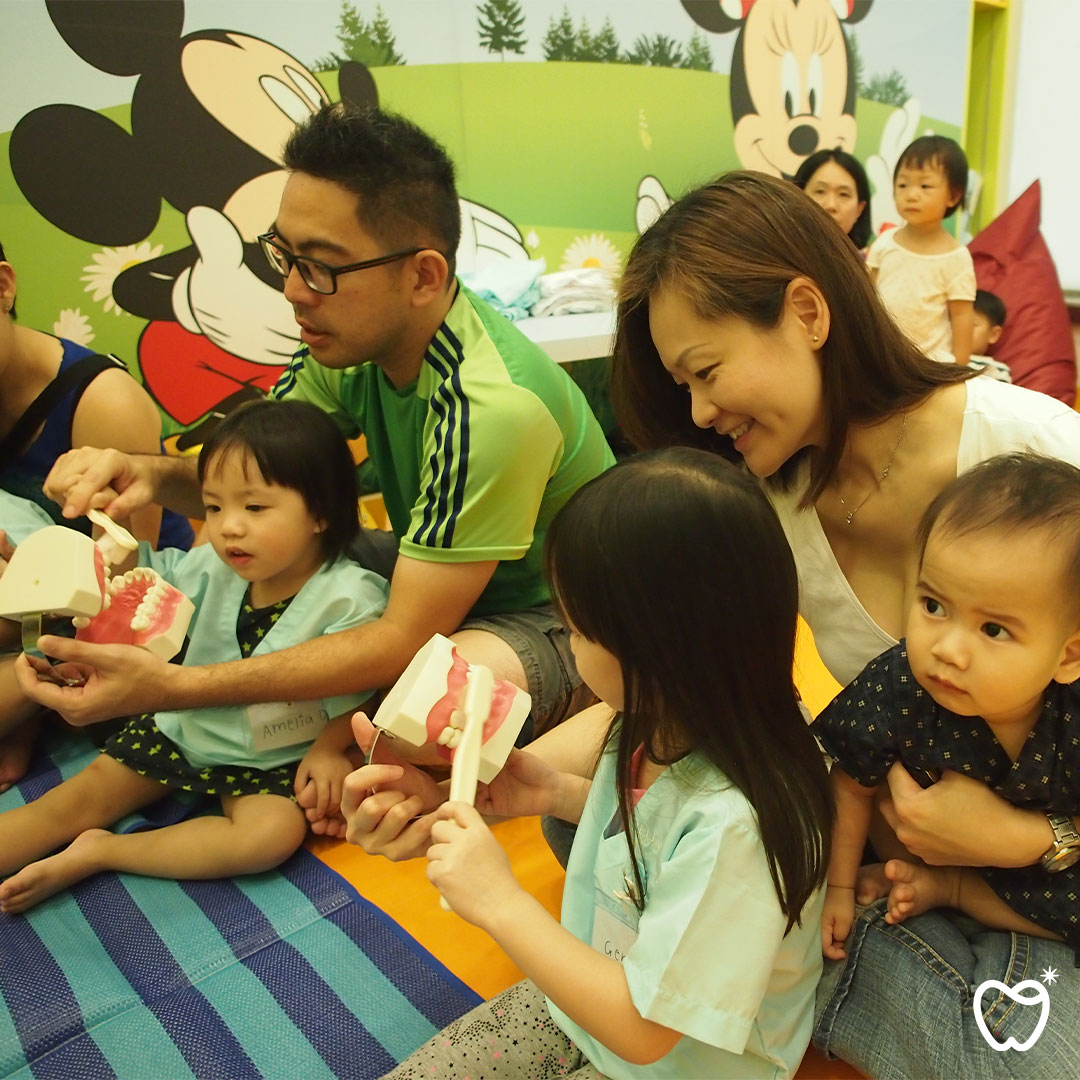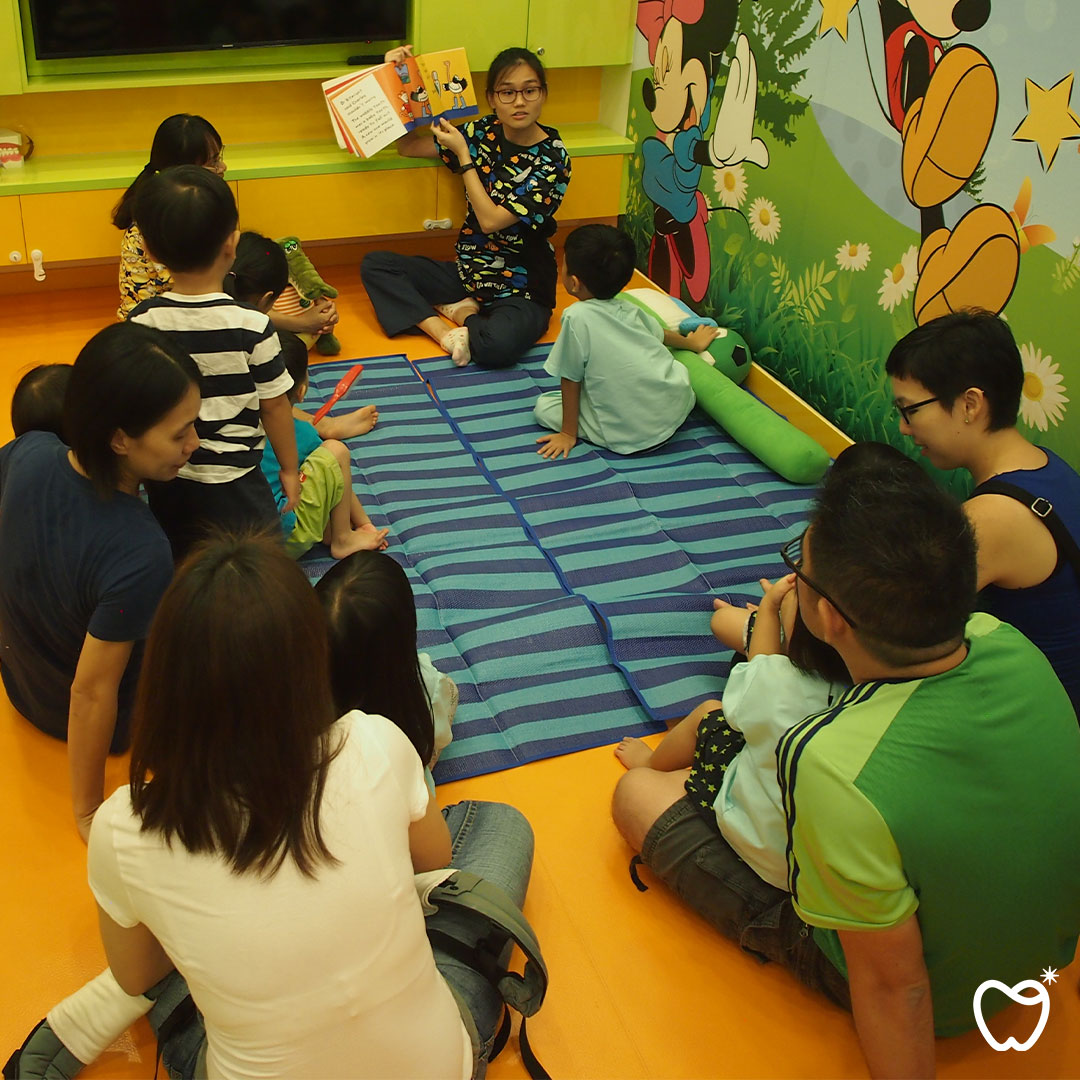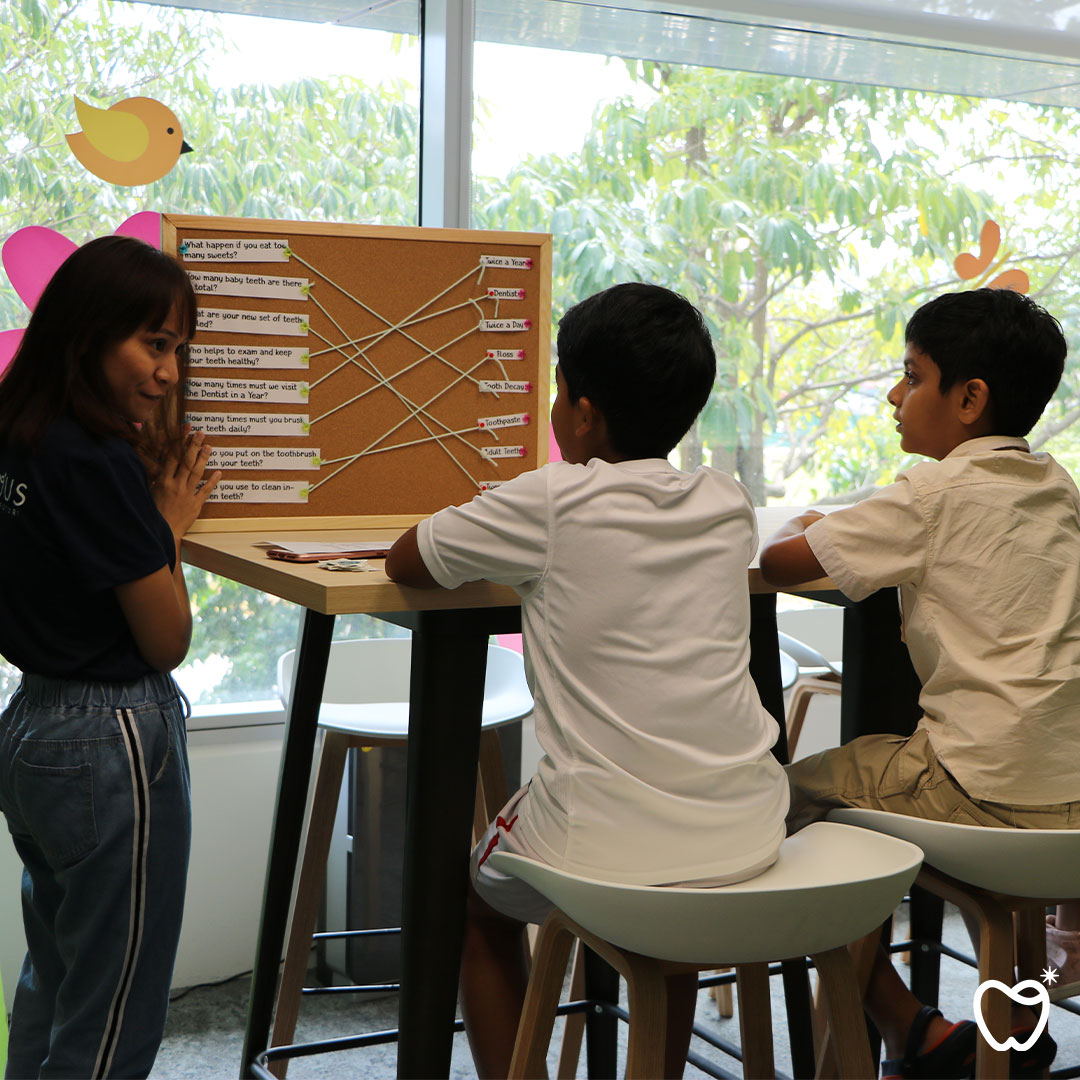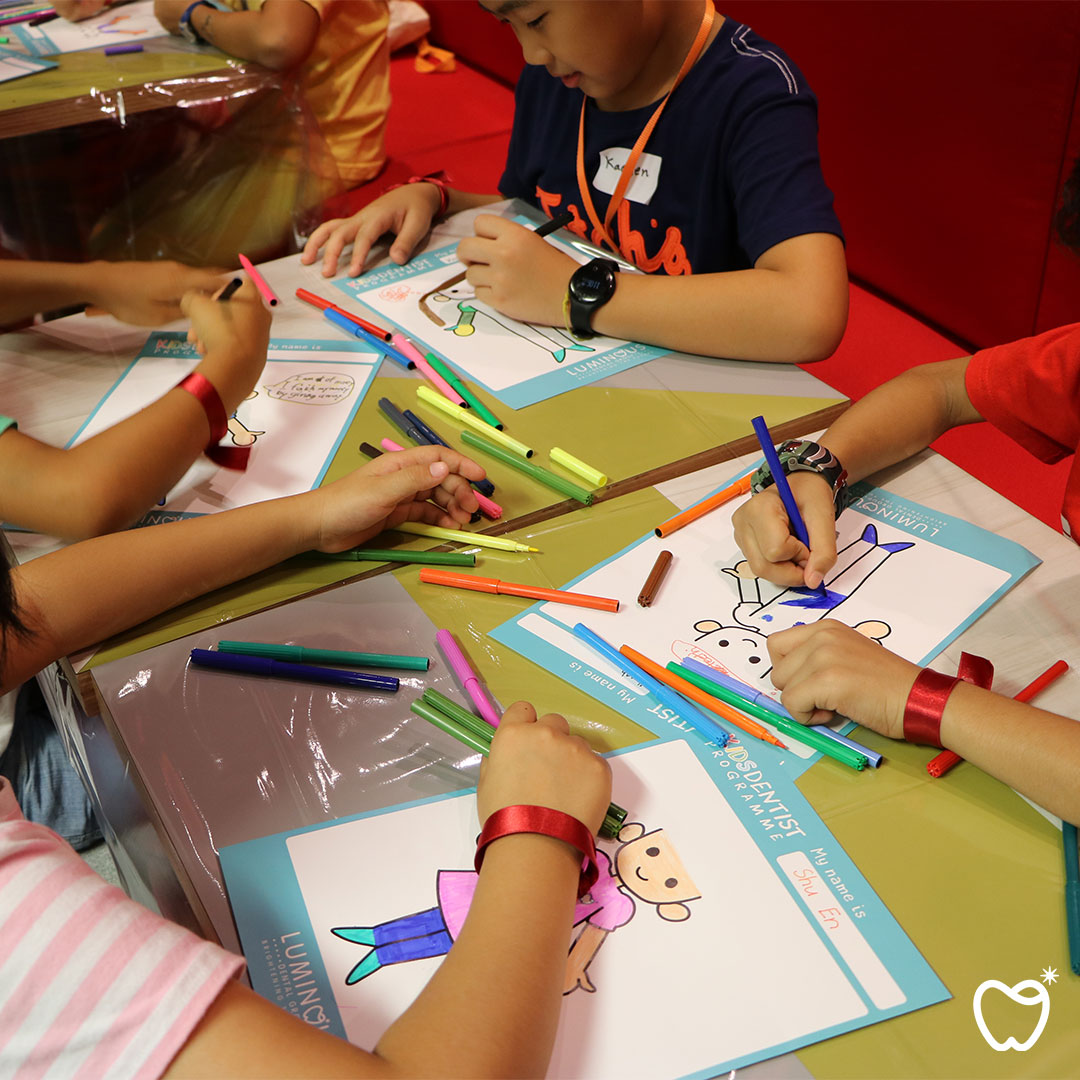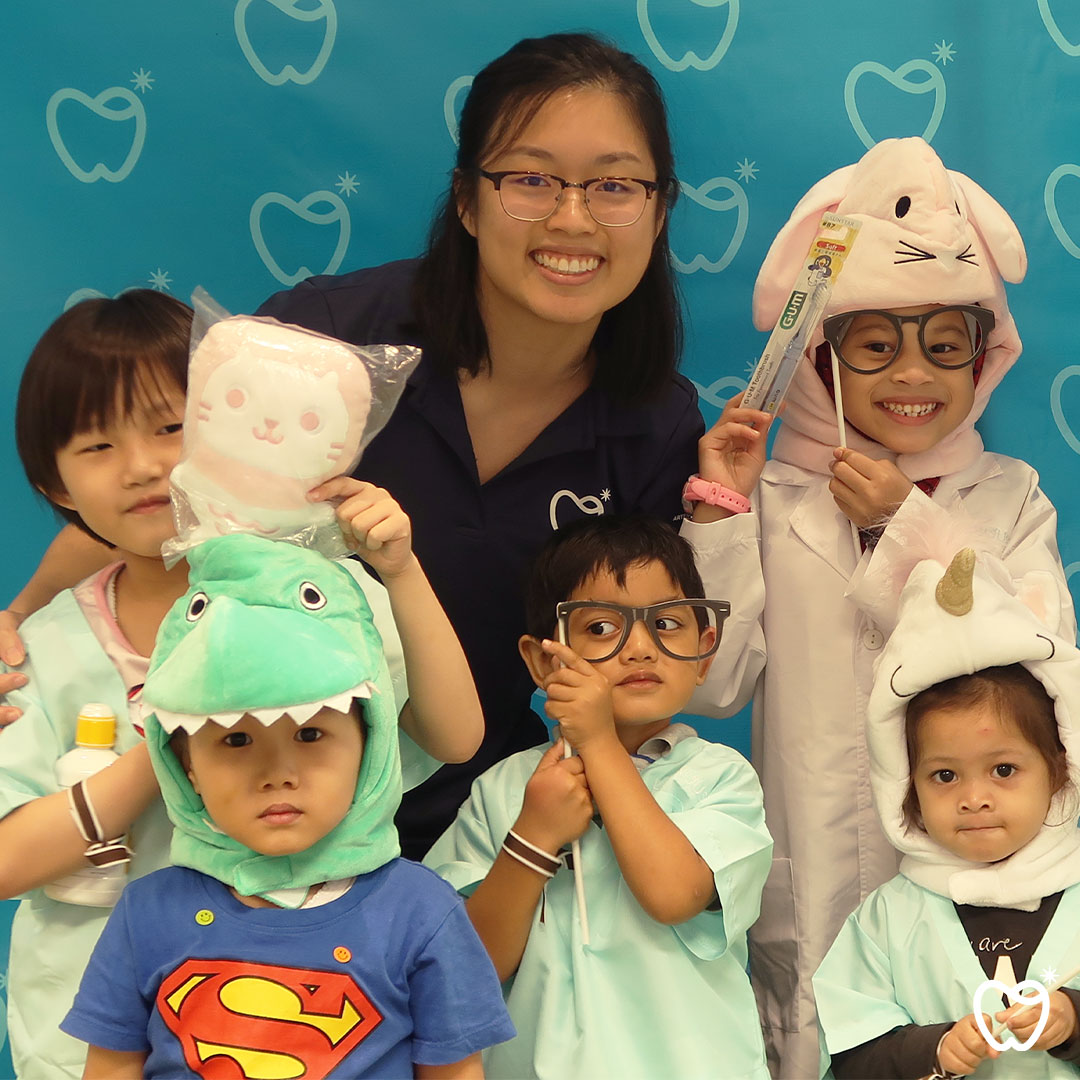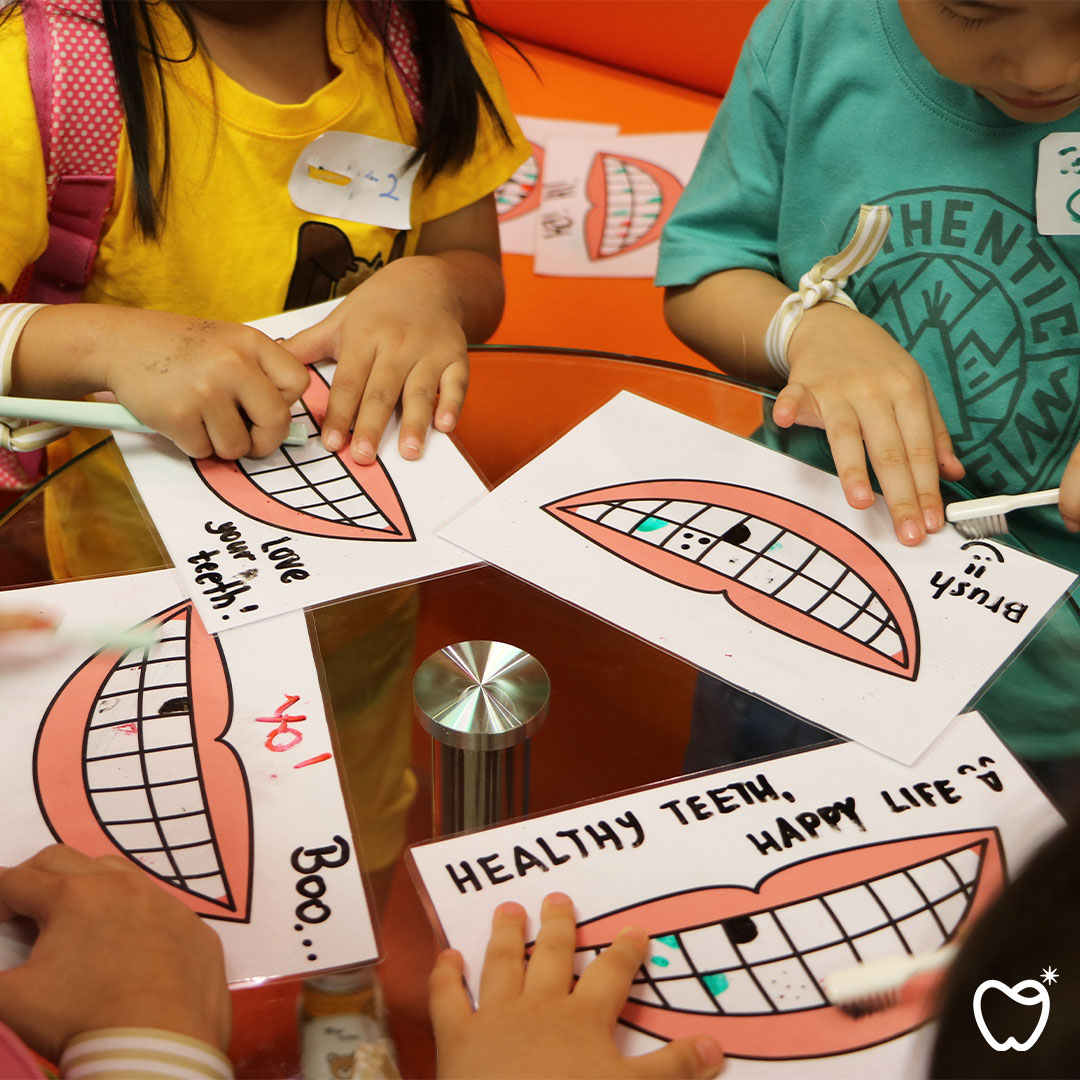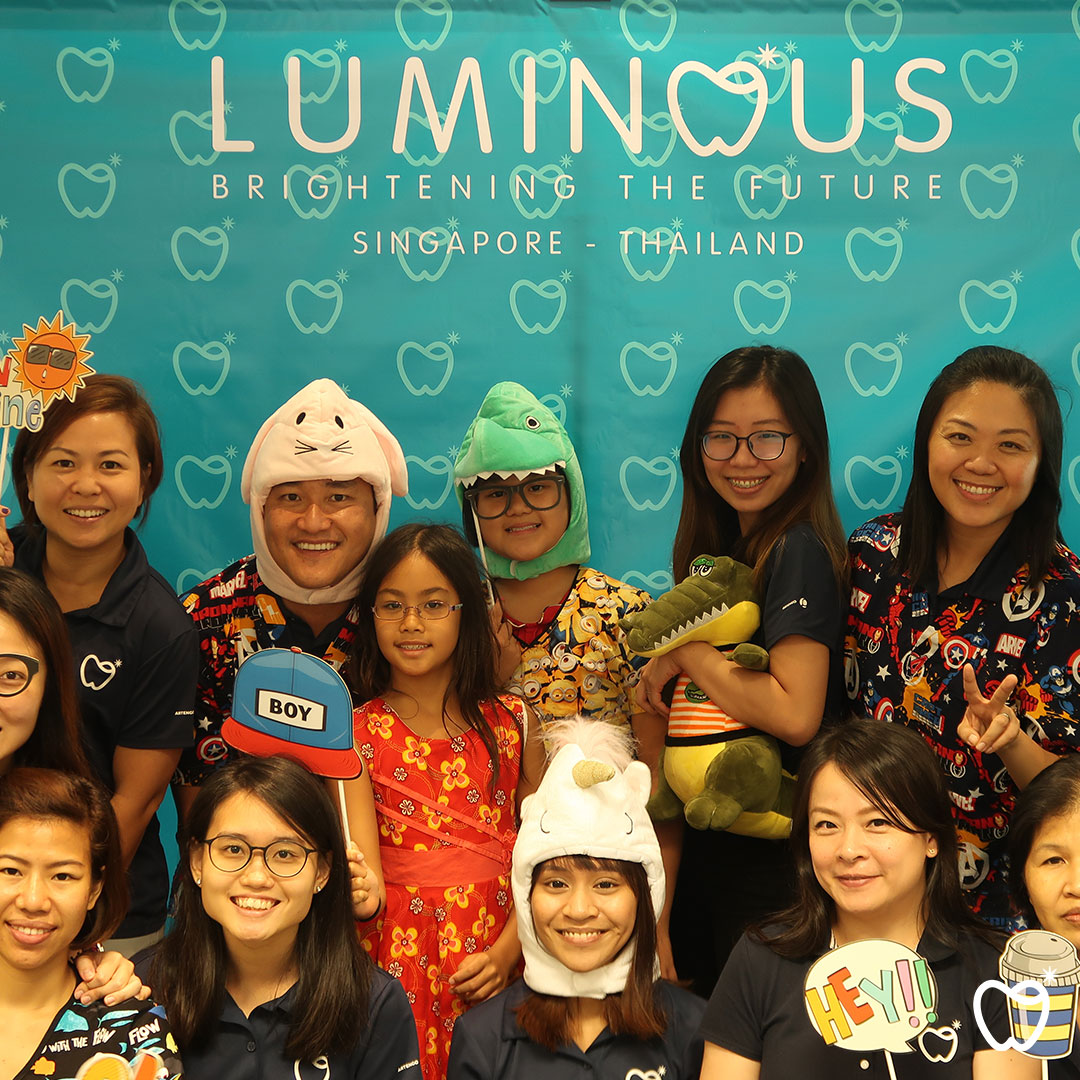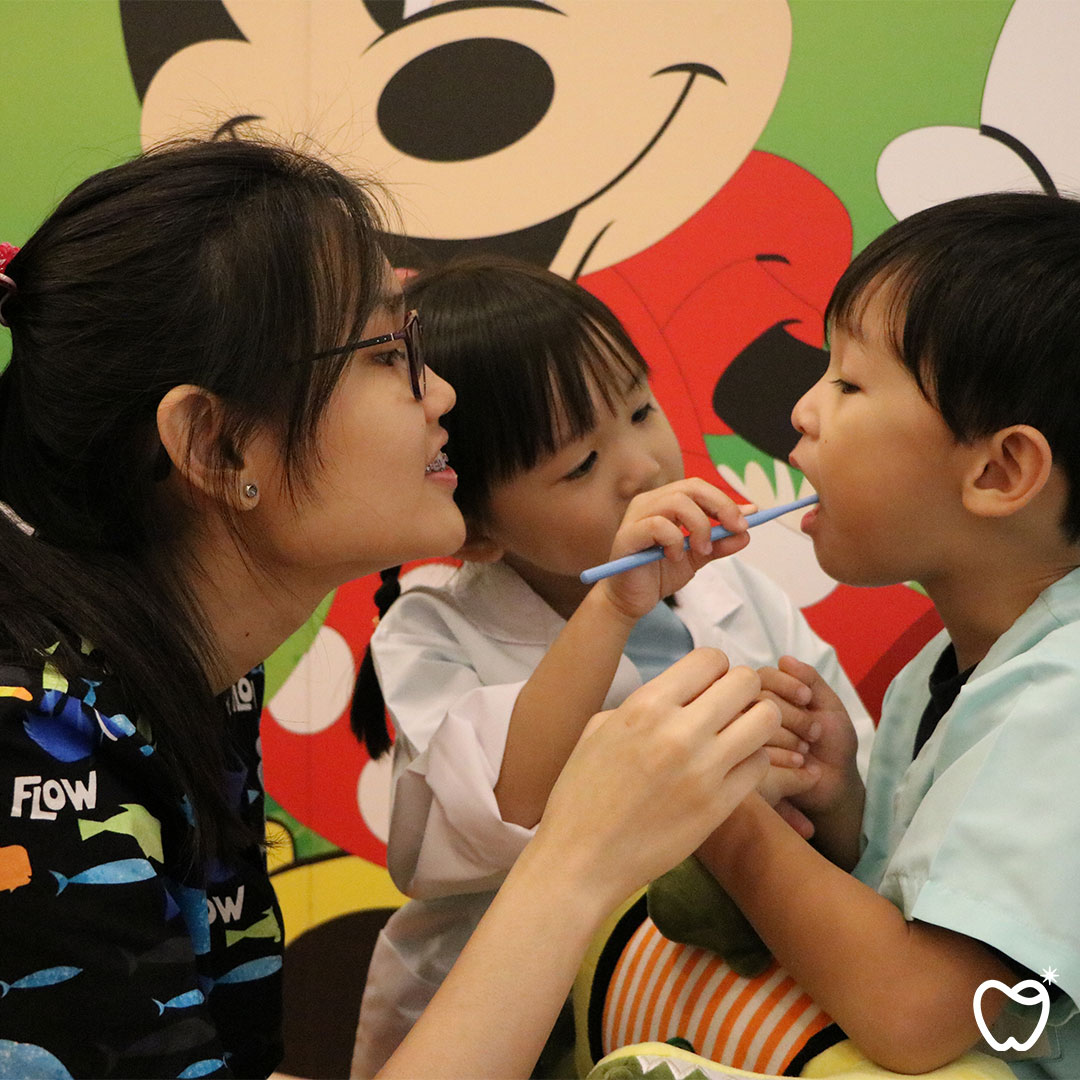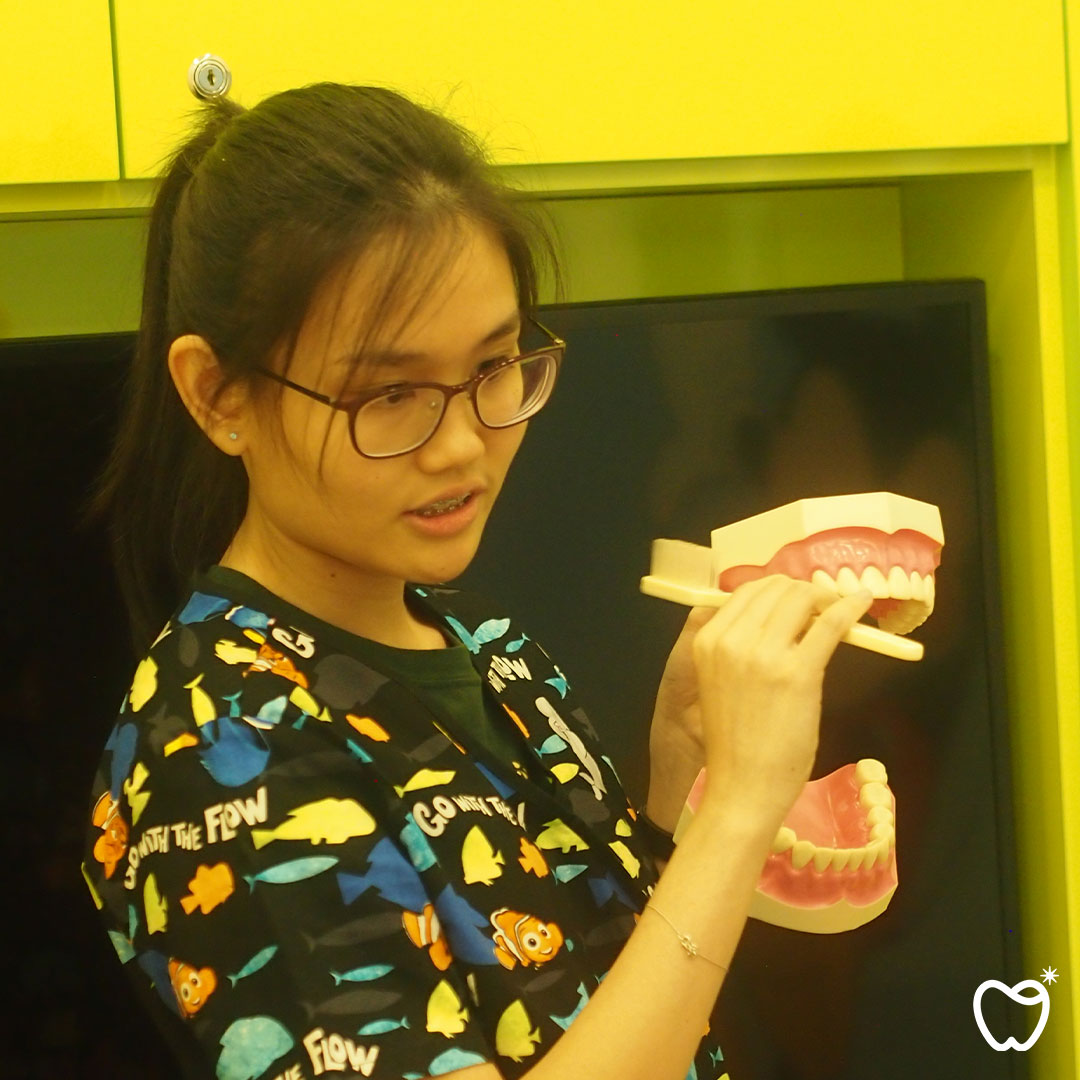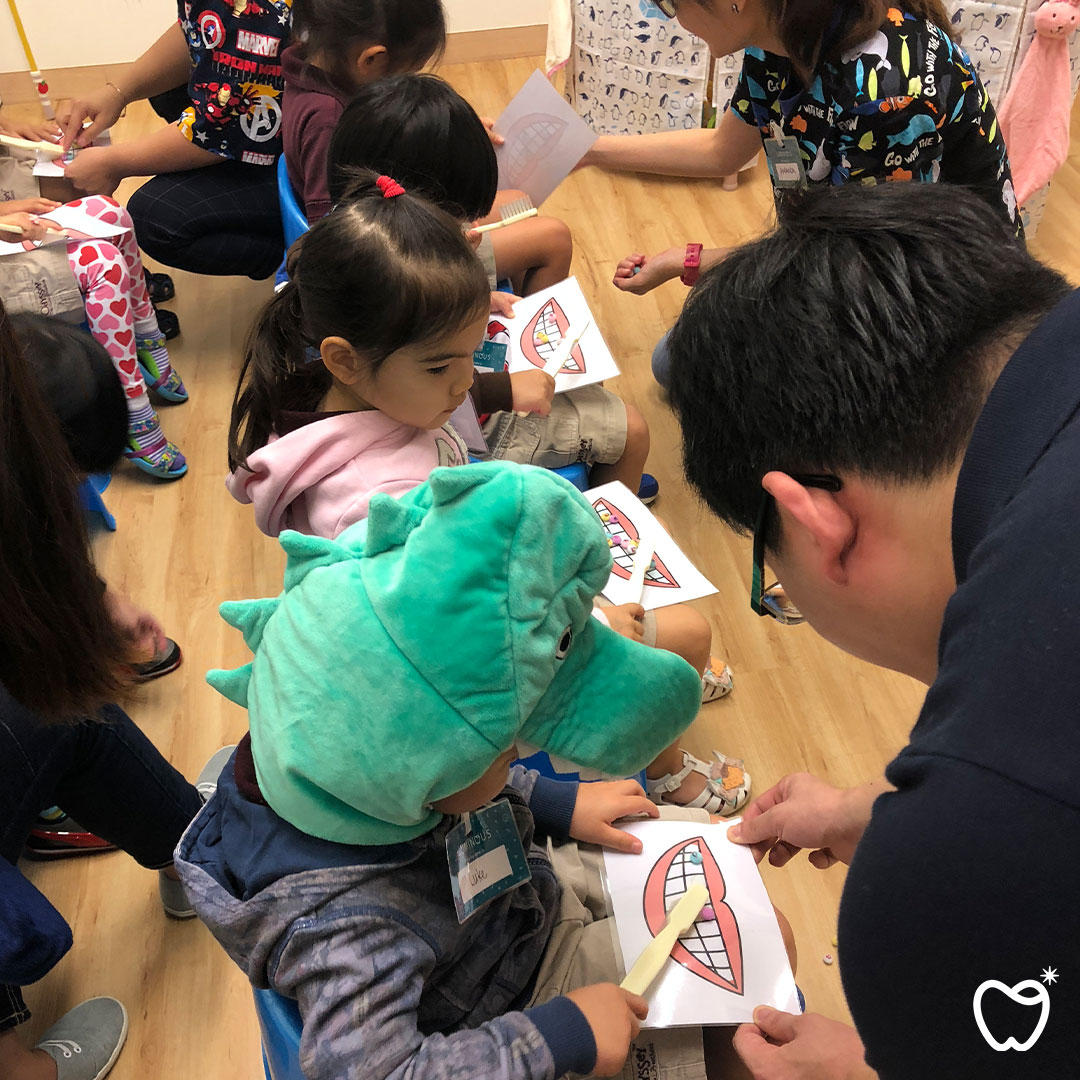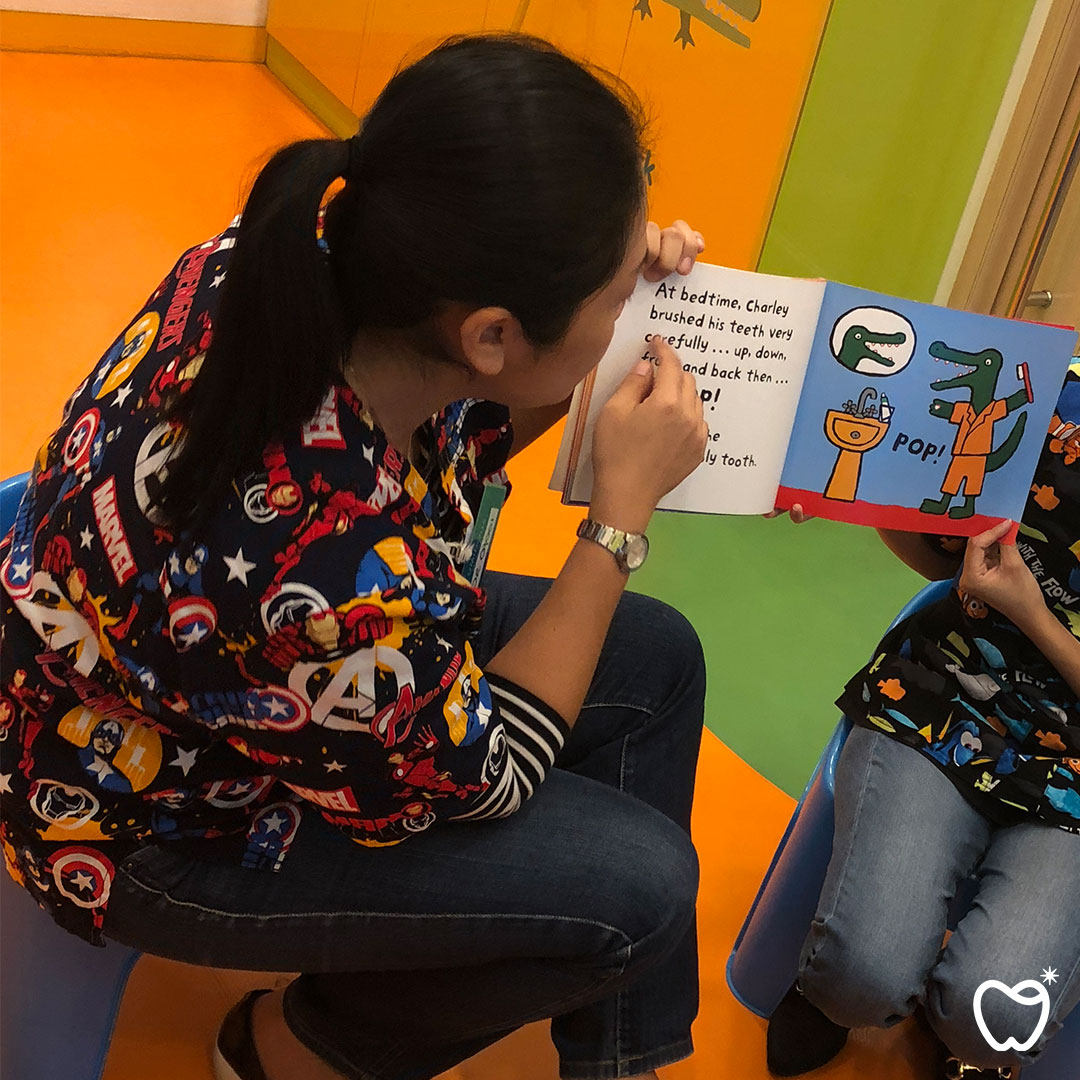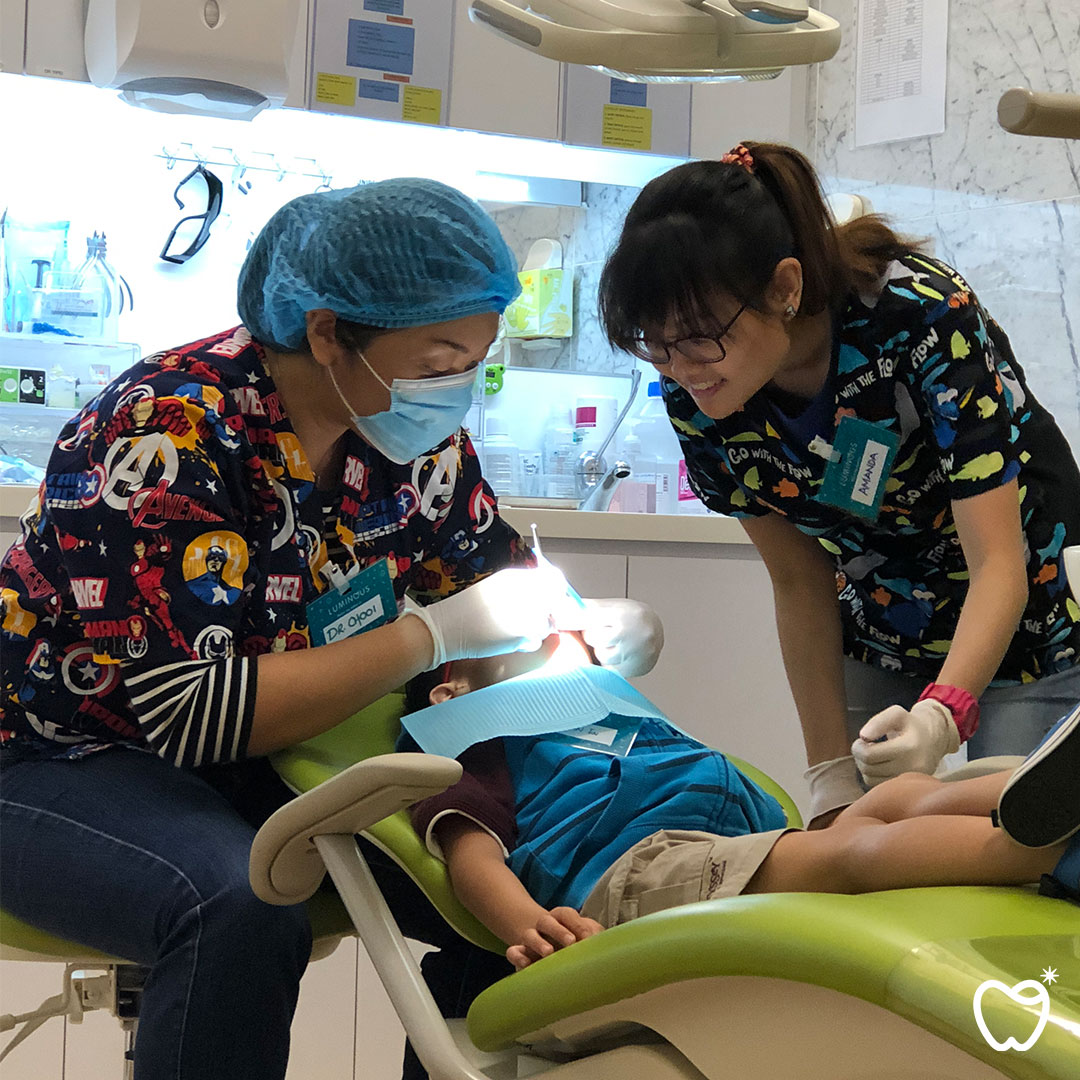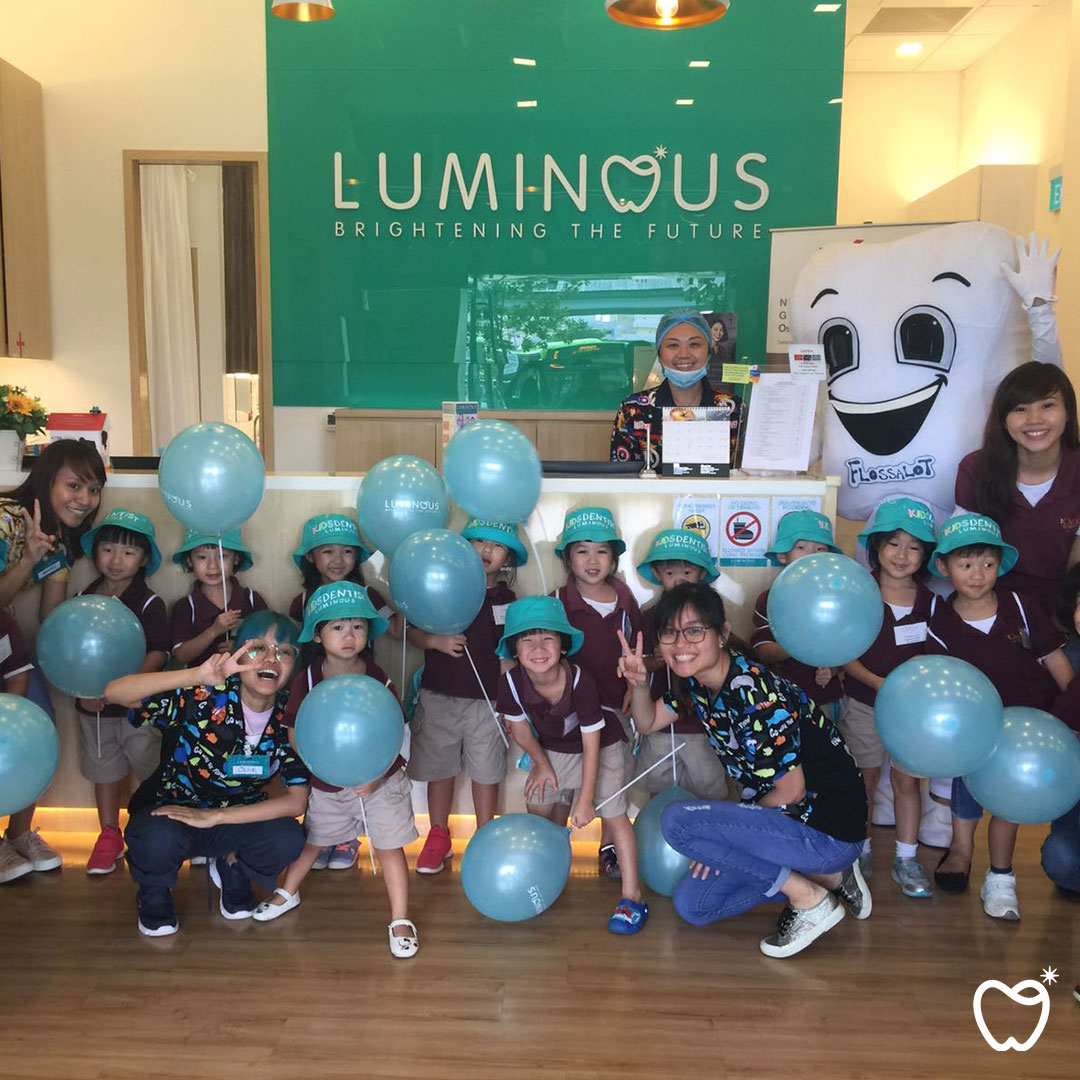For The Kids
 Designed by dentists from the National University of Singapore, who are parents themselves, and with more than 15 years of clinical experience in the industry, our specialized KidsDentist helps children age 4 – 8 years old to develop confidence and overcome any fear when visiting the dentist.
Designed by dentists from the National University of Singapore, who are parents themselves, and with more than 15 years of clinical experience in the industry, our specialized KidsDentist helps children age 4 – 8 years old to develop confidence and overcome any fear when visiting the dentist.
Discover through role play activities that offer real life experiences and take learning to the next level
Learning outcomes:
- The children will remember the duration of toothbrushing and getting the tooth brushing technique correct.
- A better understanding on how bacteria can cause tooth decay and the result if it is not attended to.
- Differentiating what type of food is beneficial to teeth growth and what are the nutrients in each particular food.
- At the end of the session, the children will be able to identify whether there is decay in their parent’s set of teeth. They would be able to confidently advise their parents or even their younger siblings the right way to brush their teeth.
Experiential Learning
The process of learning through experience helps to develop:
- Cognitive skills
- Psychomotor skills
- Social skills
KidsDentist Program Highlights
- Tooth Brushing Techniques
- Relationship Between Bacteria and Tooth Decay
- Healthy Foods
- Differences Between Baby and Adult Teeth Set
- Checking of Teeth by Dentist
*Programmes/ Activities will subject to changes and requirements
At the end of the programme, the children would have no fear of the dentist and possess the confidence to take good care of their oral health.
FAQs
1. At what age should kids see a dentist?
- Generally, you may want to bring your child anytime after the eruption of their first tooth, or at the age of 1. National studies have shown that preschool-aged children are getting more cavities, many kids get cavities as early as age 2. To prevent early childhood cavities, parents need to find out the risk of developing cavities.
2. What should I do if a tooth dropped out via accident or trauma (for an Avulsed Tooth)?
- The most important thing is to remain calm.
- Find the tooth and hold it by the crown rather than the root.
- If the tooth is dirty, wash it briefly (10 seconds) under cold running water.
- If possible, put the tooth in a glass of milk or the child’s saliva.
- Seek emergency dental treatment immediately.
3. At which stage of my pregnancy can I arrange for a routine scaling & polishing?
- It is advisable to do it during the second Trimester.
4. Is it ok to use Toothpaste with Fluoride content?
- Most toothpaste and mouthwash today contains Fluoride, which strengthens our enamel and rebuilds lost minerals in our teeth.
- However, when too much is ingested by children while they are developing adult teeth, they may develop Fluorosis, a common condition that causes white spots on adult teeth, or in severe cases, noticeable pits and yellow or brown stains.
- A “pea-size” amount of toothpaste is enough to clean your child’s teeth.
- Monitor the Fluoride intake of your little one today and make sure they don’t swallow the toothpaste, no matter how fruity and tasty the strawberry flavour is.
5. What’s the Best Age for orthodontic treatment?
Early Orthodontic Treatment in Children
A common question that is often asked by parents are dentists are “When would it be the right time to seen orthodontist?” According to the American Association of Orthodontists, a child should have their first evaluation no later than age 7.
This is because although many baby teeth are still present, some adult teeth would have emerged and an orthodontist can begin to detect problems such as crowding, or bite issues that can interfere with the child’s growth and development.
The benefits of this includes the resolution of crossbites, creation of space and guidance for eruption of permanent teeth, reducing risk of trauma to protrusive front teeth, and maintaining space for adult teeth, potentially reducing the time for treatment later.
It should be made clear that comprehensive treatment should not be done at this early age. In some cases interceptive early treatment can help avoid more serious problems in the permanent dentition, or enable the orthodontist to achieve final results in the long term that would not be possible if left until there is no growth potential later.
6. Should I be concerned if my child has a baby tooth that still hasn’t grown out after the rest has?
- Not to worry. Sometimes, a tooth may be congenitally missing. Visit the dentist with your child for a checkup to be very sure.
7. When will be the best time to stop letting my child use the pacifier?
- It is strongly recommended to reduce the use of a pacifier after their first birthday.
- Prolonged usage of the pacifier will result in crooked teeth. It also detrimentally impact the development of the mouth, teeth, jaw, and face.
- Some of the common bites your child may result in Anterior open bite, High narrow palate, Posterior crossbite, Narrow intercuspal width of the maxillary arch or Narrow intercuspal.
8. What is a Baby Bottle Tooth Decay?
- It is a serious condition that could damage your child’s teeth if left unchecked!
- When your child drinks from a cup, the sugar in the liquid passes by the teeth quickly and does little harm.
- However, when a sugary beverage, such as apple juice, is given to the child in a baby bottle for them to suck on, the sugar stays and lingers in the mouth, causing damage to the teeth.
- In severe cases, the upper front teeth could erode completely, causing the child issues in chewing and speaking clearly.
- If the child requires something to suck on, try a pacifier, and remember to never dip the pacifier in any sugar beverages or honey for the same reason.

![[:en]Kids' Club[:]](https://luminousdentalgroup.com/wp-content/uploads/2018/03/kidsclub_img.jpg)
